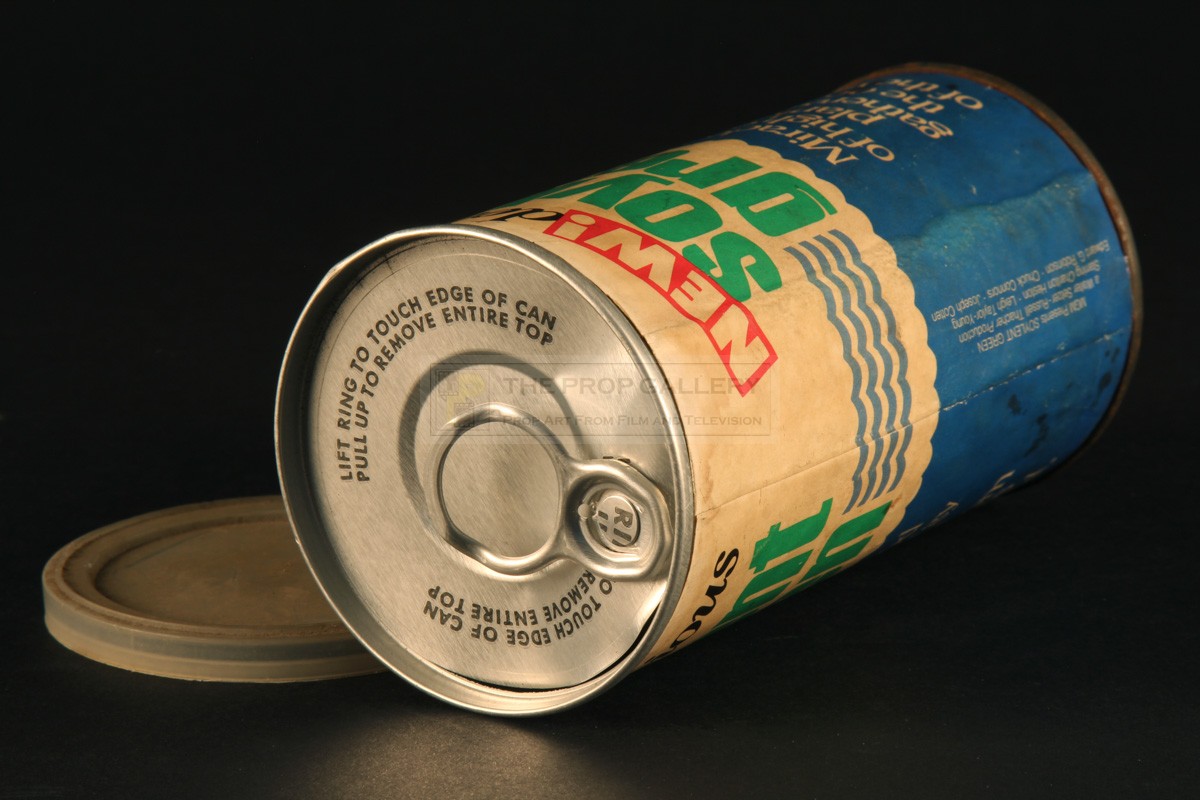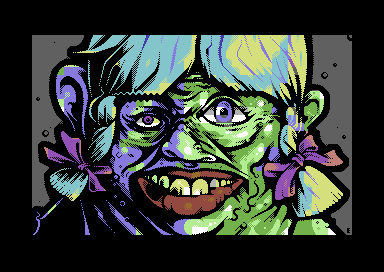


Downer Beginning: The opening titles show how the world got to be so crapsack, with extended focus on pollution and overpopulation.Dirty Cop: Thorn is a downplayed version of this: he more or less does his job and tries to solve the Simonson case, but he has no problem stealing from a murder victim.Despair Event Horizon: Once Sol learns the horrible truth about the poor state of the natural environment and the disgusting nature of the titular product, he loses the will to live.The harsh values of the world of 2022 - from the tolerance of euthanasia, to police being allowed to steal food from murder victims, to women being kept to live as prostitutes - are a sign of how desperate and hopeless society has become. Deliberate Values Dissonance: Played for Drama.Da Chief: Hatcher is an unusually laid-back example, but he still has the general look, rank, and requisite "stop chasing this case" scene.Crapsack World: You have people sleeping on every inch of the street and even on the staircases of apartments, real food is prohibitively expensive, there is a year-long heat wave going on, not to mention the secret of Soylent Green.If they jump and run off, it's still done its job, but if they actually do end up arresting the people rioting for food, they'd have to feed them. The riot scoops are just to get the rioters out of the way. Once the "Riot Control" front end loaders arrive, they lift groups of people so slowly that you wonder why everyone isn't jumping right off. Covers Always Lie: Though more misleading in this case.Which is a little odd considering, as Hatcher notes, Thorn has never seen a grapefruit. Shirl), Thorn's only response is to grin, gesture vaguely at his own torso and say "Like grapefruit!". When asked if he has anything to report on Simonson's "furniture" (i.e. Bloodstained Glass Windows: The final showdown with Fielding is in a church.

The Big Rotten Apple: The worst aspects of 1970s New York City multiplied by 100 (at least).

Thorn: How could I know? How could I ever imagine? Simonson himself is very understanding about his own demise. The assassin himself has no idea what the message means and is just doing what he's been told.
#Soylent green movie#
Adaptation Title Change: The movie was based on Harry Harrison's Make Room! Make Room!.Adaptation Name Change: Thorn was known as "Andy Rusch" in Harrison's novel.Robinson, who died of cancer 12 days after production wrapped.įor the trope previously known as the titular food, see Powered by a Forsaken Child, Human Resources. Robinson), a book collector who remembers happier times, and they have a memorable scene cooking up the food that Thorn also stole from the late Mr. He gives Simonson's oceanographic survey (which he himself stole) to his elderly roommate Sol Roth ( Edward G. Based on the fact that there was valuable food and books left for him to steal, and that his bodyguard Fielding ( Chuck Connors) and 'furniture' Shirl ( Leigh Taylor-Young) were conveniently away at the time, Thorn believes it to be an assassination. 40,000,000 (its current population is about 8 million, not much higher than in 1970), police detective Frank Thorn (Heston) is investigating the burglary-turned-murder of wealthy businessman William Simonson ( Joseph Cotten), a board member of the food rations manufacturer Soylent Corporation. Overpopulation has brought environmental and economic collapse. Soylent Green is a 1973 dystopian Science Fiction film directed by Richard Fleischer and starring Charlton Heston, loosely based on Harry Harrison's 1966 novel Make Room! Make Room!


 0 kommentar(er)
0 kommentar(er)
